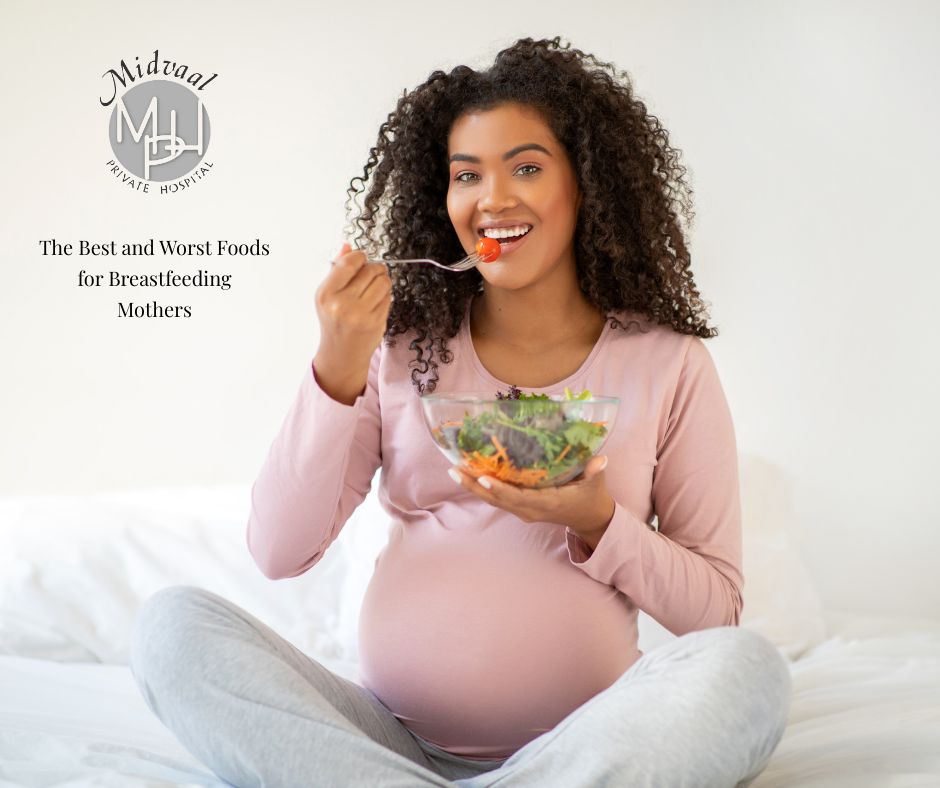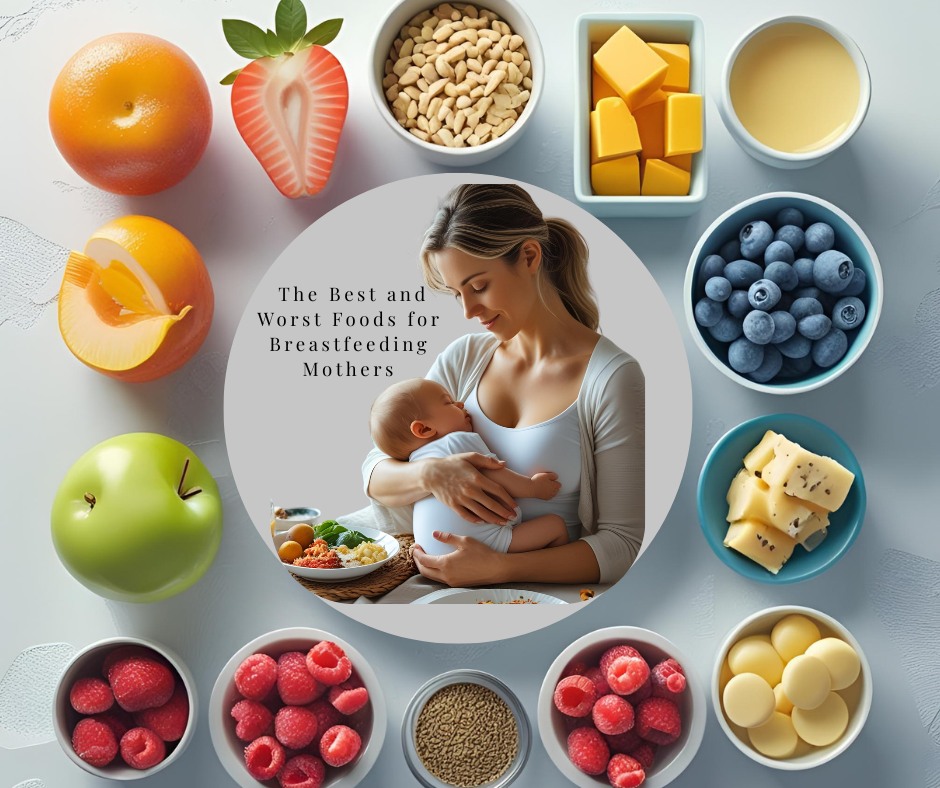Introduction
When you’re breastfeeding, every bite you take matters. Your diet doesn’t just affect your own health and recovery after childbirth — it also influences your baby’s growth, development, and immune system. The nutrients in your meals pass directly into your breast milk, making food choices one of the most important aspects of breastfeeding.
At Midvaal Hospital, we’re passionate about supporting mothers through every stage of the breastfeeding journey. As part of our Breastfeeding Month awareness campaign, we’ve created this guide to help you choose foods that promote a healthy milk supply, sustain your energy, and give your baby the best possible start in life.
For practical tips on breastfeeding techniques, positioning, and supply, you can also read our companion post: Nourishing Your Baby Naturally: Healthy Breastfeeding Tips Every Mother Should Know.
1. The Best Foods for Breastfeeding Mothers
a) Oats and Whole Grains
Whole oats, quinoa, and brown rice are high in iron, complex carbohydrates, and fiber. These nutrients help maintain steady energy levels while supporting your body’s ability to produce milk. Many mothers find oats particularly beneficial for boosting supply due to their high beta-glucan content.
b) Leafy Green Vegetables
Spinach, kale, and broccoli are rich in calcium, vitamin K, and antioxidants. They not only aid your baby’s bone development but also support your immune system. Steaming or lightly sautéing greens can help preserve their nutritional value.
c) Lean Proteins
Chicken, turkey, eggs, lentils, and low-mercury fish provide the essential amino acids needed for growth and repair in both mother and baby. Including protein at every meal helps you stay fuller for longer and stabilises blood sugar levels.
d) Healthy Fats
Good fats are crucial for your baby’s brain and eye development. Avocados, chia seeds, walnuts, and olive oil are all excellent sources of omega-3 fatty acids, which also help reduce inflammation and support postpartum recovery.
e) Fresh Fruits
Fruits like berries, oranges, and bananas are hydrating, packed with vitamins, and easy to snack on between feeds. Vitamin C-rich fruits in particular support wound healing and help your body absorb iron from plant-based foods.
2. Foods to Limit or Avoid While Breastfeeding
a) Excess Caffeine
While small amounts are safe, too much caffeine can pass into breast milk and make your baby restless or fussy. Limit your intake to 200–300mg a day — roughly 1–2 cups of coffee.
b) Alcohol
Alcohol passes into breast milk within 30–60 minutes of drinking. If you choose to drink, follow the “pump and store” method beforehand or wait at least 2–3 hours before feeding again.
c) Highly Processed Foods
Chips, sugary drinks, and fast foods often contain unhealthy trans fats, excess sugar, and preservatives, which can lower the overall nutritional value of your milk and slow your recovery.
d) Certain Fish
Avoid fish high in mercury, such as swordfish, shark, and king mackerel, as mercury can harm your baby’s nervous system. Choose salmon, sardines, or trout for safe, omega-rich options.
3. Tips for Maintaining a Balanced Breastfeeding Diet
-
Hydrate: Aim for at least 8–10 glasses of water daily.
-
Eat Regularly: Small, frequent meals keep your energy up and your milk supply steady.
-
Plan Ahead: Prep healthy snacks like boiled eggs, yogurt, or chopped fruit to grab during busy days.
-
Add Variety: A colourful plate often means a wider range of vitamins and minerals.
-
Listen to Your Body: Your hunger and thirst cues are your body’s way of telling you it needs more fuel for milk production.
Why Nutrition Matters During Breastfeeding
A breastfeeding diet isn’t about “eating for two” in terms of quantity, but rather “eating for two” in terms of quality. The goal is to maximise nutrient density — ensuring every meal is rich in the vitamins, minerals, and macronutrients both you and your baby need.
A well-balanced diet during breastfeeding can:
-
Improve the nutritional content of your breast milk.
-
Help you recover faster after childbirth.
-
Boost your energy and mood.
-
Reduce the risk of postpartum deficiencies.
Conclusion
Breastfeeding is one of the most impactful ways you can support your baby’s health, and your diet plays a key role in that process. By focusing on whole, nutrient-rich foods and limiting those that may cause harm, you’re setting your baby up for a strong start in life.
At Midvaal Hospital, we provide personalised breastfeeding support, nutritional guidance, and medical care to help mothers feel confident and empowered. Whether you need advice on your diet, latching techniques, or milk supply, our team is here to guide you every step of the way.
📍 Visit us at:
1 Nile Dr, Three Rivers, Vereeniging, 1935
📞 Contact: 016 454 6000
📧 Email: info@mphmidvaal.com
🌐 Website: www.mphmidvaal.com
Call today to book your appointment or winter health consultation.






